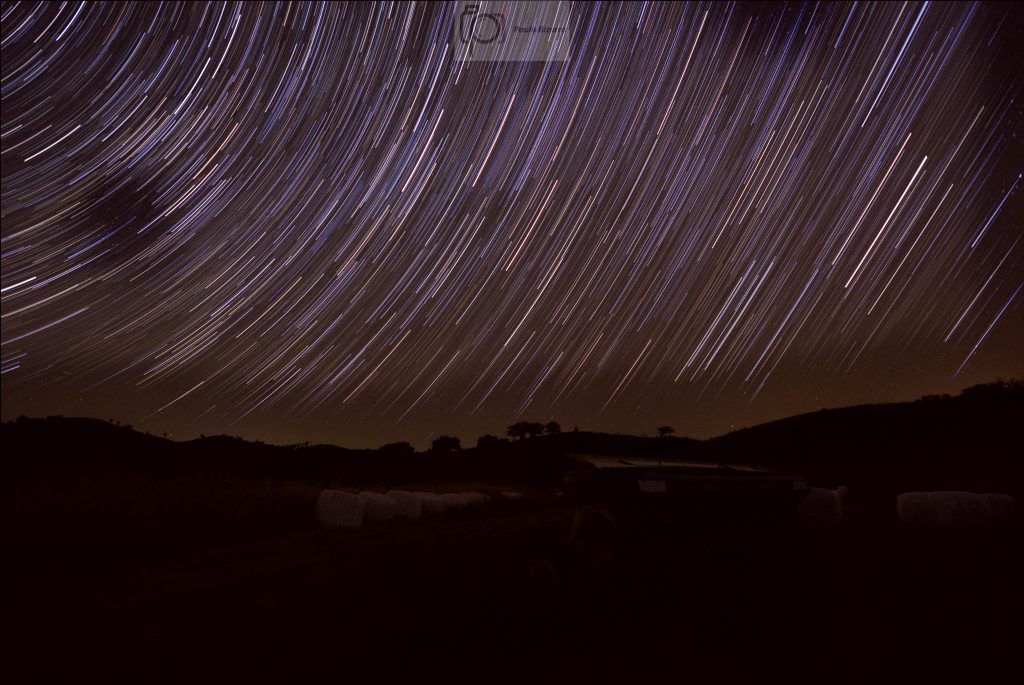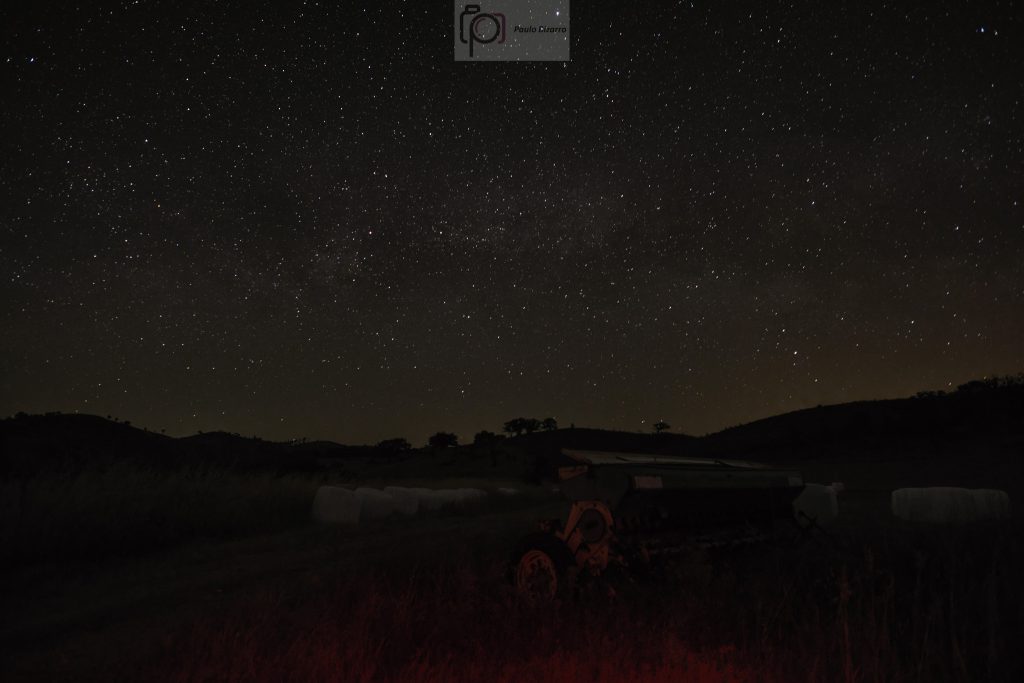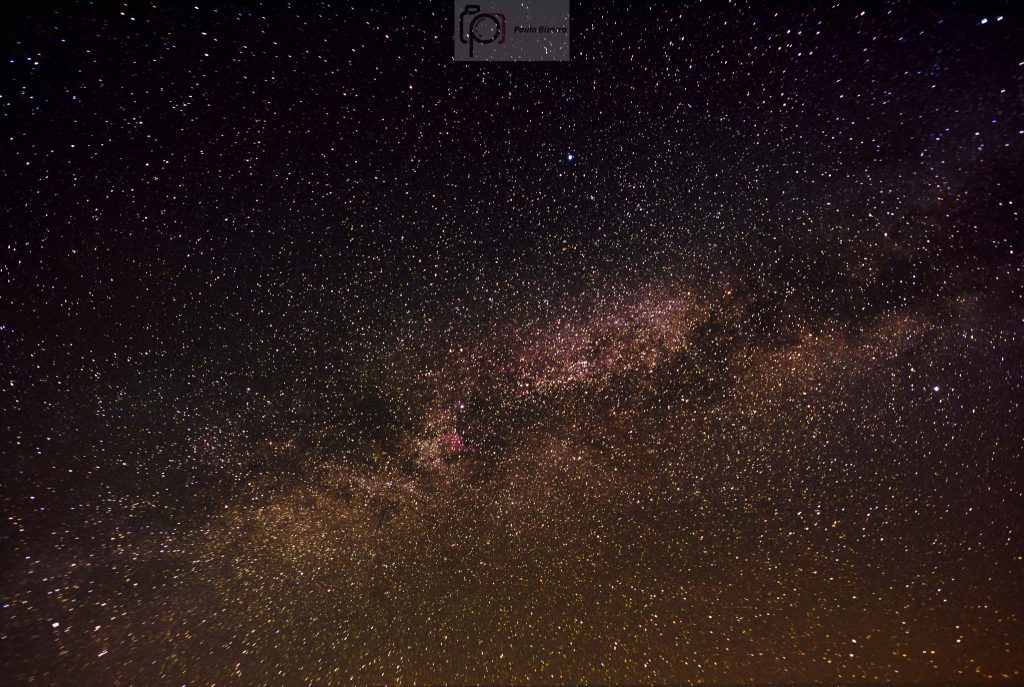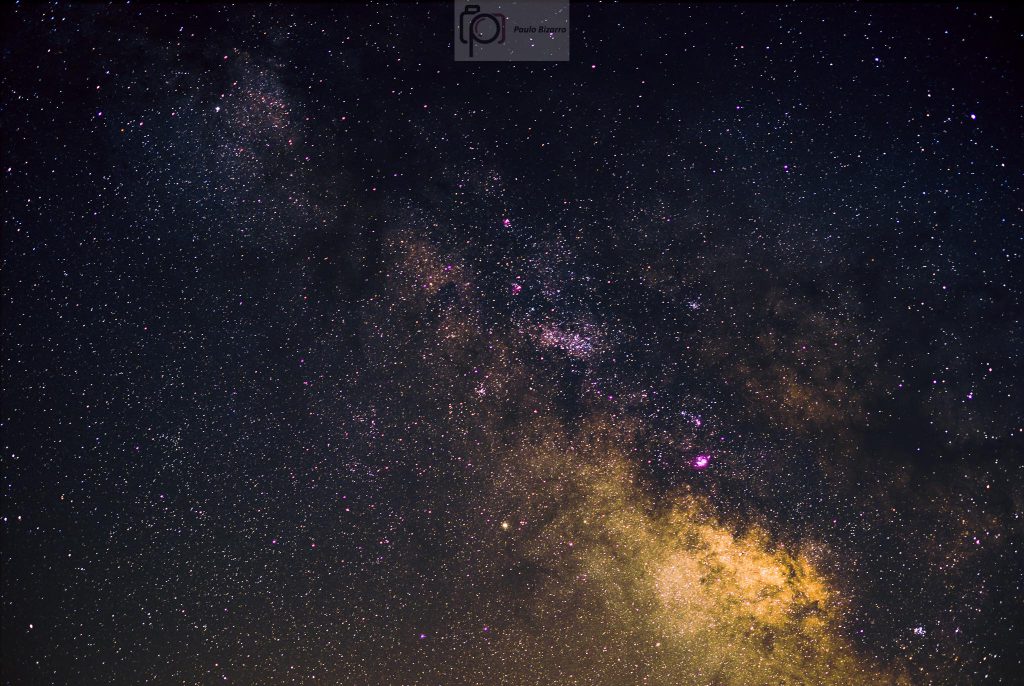This is a small essay about a recent photo session I have carried out to photograph some star trails and the Milky Way near Sabóia, in the municipality of Odemira. I had recently visited this same location, taking some photos of the countryside and the hay bales along the fields. I wrote about it here:
During this previous visit, I thought the place had potential for some night sky photography; being far away from any important village, it would probably be very dark during a new Moon period. I have thus made plans to go back, which I did a few days ago. I arrived well after dark, and set up my tripod and camera in order to frame some of the interesting foreground, including some hay bales and machinery.
Technically, I have used my wide angle lens (Fujinon 14mm f/2.8) wide open, and a shutter speed of 30 seconds, at ISO 1600. Using manual focus, I carefully focused on a bright star. I have also shot in Raw format, setting the intervalometer of the camera to 80 photos. This would result in a total of 40 minutes total exposure time. Later on, I have used the Sequator software to stack the resulting images into a star trail.


After finishing the series for trail stacking, I made a couple more series of shots, this time of the Milky Way. The first series was made with the wide angle lens, and consisted of 20 photos. These were later stacked also in Sequator.

The second series was made with a different lens, the Fujinon 35mm f/1.4, set at f/2 aperture. For this series, I made 10 photos, and also used Sequator for stacking.

In terms of image processing, I have followed the general guidelines as outlined by Roger Clark in his website:
https://clarkvision.com/articles/astrophotography.image.processing2/
Being out in this isolated place, admiring the immense field of stars that surrounds us was a very nice experience. Now that the summer is approaching, I will repeat these sessions whenever possible.